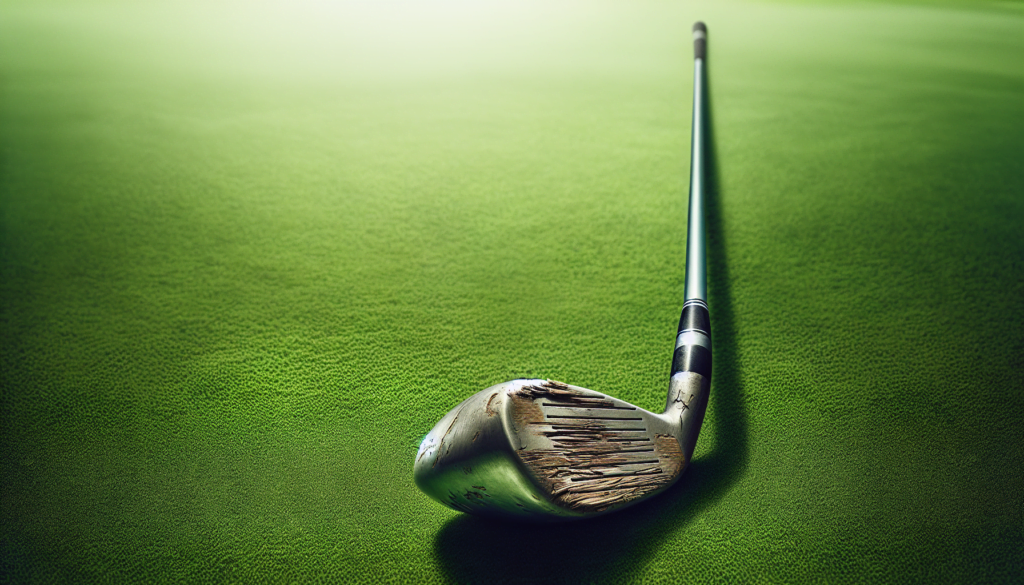As we grow older, it is natural for our bodies and abilities to change, and this includes our beloved golf game. But have you ever wondered just how one’s golf game changes with age? Whether you’re a seasoned golfer looking to anticipate the changes ahead or a curious beginner eager to learn about the journey ahead, understanding how age affects our golf game is crucial. From the physical changes in our bodies to the mental and strategic shifts in our approach, exploring these transformations can shed light on how we can continue to enjoy and improve our golfing skills regardless of our age. So, let’s grab our clubs and tee off into the world of the ever-evolving golf game!
Physical Changes
Decreased Strength
As you age, you may experience a natural decline in muscle strength. This can affect your golf game by reducing the power behind your swings. You may find it harder to generate the same distance off the tee or hit the ball with as much force. It is important to adjust your expectations and focus on other aspects of your game, such as accuracy and strategy, to compensate for this decrease in strength.
Loss of Flexibility
Flexibility is crucial in golf, as it allows you to maintain a proper posture and execute a smooth, fluid swing. However, as you get older, you may notice a decrease in your flexibility. This can lead to a limited range of motion and difficulty in achieving the optimal swing positions. To counteract this, it is essential to incorporate regular stretching exercises into your routine. Stretching can help improve your flexibility, increase your range of motion, and prevent injuries.
Reduced Stamina
Another physical change that can impact your golf game as you age is a decrease in stamina. Golf requires prolonged periods of walking and swinging, which can be exhausting if your endurance levels are not maintained. It is important to engage in regular cardiovascular exercises, such as walking or cycling, to build and maintain your stamina. Additionally, pacing yourself during a round and taking breaks when needed can help prevent fatigue and allow you to perform at your best throughout the entire game.
Technique Adjustments
Changes in Swing Speed
With age, you may find that your swing speed naturally slows down. This can affect the distance you achieve with your shots, as a slower swing may not generate as much power. To compensate for this, you can focus on improving your swing mechanics and maximizing the efficiency of your movements. Working with a golf professional or coach can help you identify any areas of improvement and develop a swing that optimizes your current capabilities.
Altering Swing Mechanics
As your body experiences physical changes, you may need to modify your swing mechanics to adapt to your capabilities. This may involve adjustments in your stance, grip, or backswing to accommodate any limitations you may have. By working with a knowledgeable instructor, you can learn new techniques that work with your body and help you maintain consistency and accuracy in your shots.
Modifying Shot Selection
With age, you may need to make smart choices when it comes to selecting the appropriate shots during a round of golf. This involves assessing your current abilities and adjusting your shot selection accordingly. For example, if you are experiencing reduced strength or flexibility, you may opt for more controlled and accurate shots rather than attempting risky or powerful shots. By playing to your strengths and choosing shots that suit your capabilities, you can still achieve success on the golf course.
Mental Factors

Experience and Knowledge
As you age, you accumulate a wealth of experience and knowledge about the game of golf. This can be a significant advantage, as you develop a better understanding of course management, shot strategies, and course conditions. Your experience allows you to make more informed decisions, resulting in better shot selection and improved overall performance.
Decision-Making Abilities
With age comes increased wisdom and better decision-making abilities. This can be beneficial in golf, as you learn to assess risks and make sound choices on the course. Your ability to analyze situations and adapt your game plan accordingly is vital in navigating through hazards and optimizing your scoring opportunities.
Mental Resilience
Golf is as much a mental game as it is a physical one. As you age, you develop mental resilience and the ability to stay focused and calm under pressure. This mental strength can aid you in overcoming challenges on the course, such as difficult shots or unexpected setbacks. By maintaining a positive mindset and staying mentally resilient, you can perform at your best and enjoy the game, regardless of any physical limitations.
Injury Risk
Increased Susceptibility to Injuries
As you grow older, your body becomes more prone to injuries. This is due to factors such as reduced muscle mass, bone density, and joint flexibility. In golf, common injuries can include strains, sprains, and tendonitis. It is important to listen to your body and take necessary precautions to prevent injuries. Engaging in regular strength and flexibility exercises, wearing proper footwear, and employing correct swing mechanics can all contribute to reducing the risk of injury.
Recovery Time
In case of an injury, older individuals may require more time to recover compared to their younger counterparts. This can disrupt your golf routine and affect your game. It is crucial to give your body adequate time to heal and follow a structured rehabilitation program prescribed by a healthcare professional. Patience and adherence to the recovery process can help you return to the course stronger and healthier.
Risk Management
Adjusting Course Strategy
As you age, adjusting your course strategy becomes essential. This means making smarter decisions based on your current abilities and limitations. You may choose to avoid certain hazards or adjust your target areas to minimize risks. By playing strategically, you can navigate the course effectively and optimize your scoring opportunities without putting your physical well-being at risk.

Prioritizing Accuracy over Distance
While hitting the ball far off the tee can be exhilarating, as you age, it becomes more important to prioritize accuracy over distance. Focusing on achieving consistent, controlled shots can help you avoid unnecessary errors and keep you in play. By placing a premium on accuracy, you can still achieve solid scores and compete effectively, even if your strength or swing speed has diminished.
Equipment Considerations
Choosing Senior-Friendly Clubs
To improve your golf game as you age, it is essential to choose clubs that are specifically designed for seniors. Senior-friendly clubs often have features such as lightweight materials, higher loft, and forgiving clubheads. These features can help older golfers generate more distance, achieve a higher trajectory, and minimize mis-hits.
Customizing Equipment
Customizing your equipment to suit your individual needs can greatly enhance your golf game. This may involve adjusting club lengths, grip sizes, or shaft flex to optimize your swing mechanics. Working with a club-fitting specialist can ensure that your clubs are tailored to your unique physical attributes, allowing you to play with maximum comfort and efficiency.
Training Methods
Focus on Flexibility and Mobility
To counteract the natural loss of flexibility associated with age, incorporating regular flexibility and mobility exercises into your training regimen is crucial. Stretching exercises that target the major muscle groups involved in the golf swing can help improve your range of motion, enhance your posture, and promote a more efficient swing. Additionally, exercises that improve hip, shoulder, and trunk mobility can further assist in maintaining an effective and fluid golf swing.
Strength Training
Engaging in strength training exercises helps counteract the natural decline in muscle mass and strength that comes with aging. Strengthening your core, legs, and upper body can improve your stability, power, and overall swing mechanics. However, it is important to consult with a fitness professional to ensure that your strength training program is safe and appropriate for your age and fitness level.
Swing Modifications
To adapt to any physical limitations you may have, working with a golf instructor to modify your swing can be beneficial. They can help you identify areas for improvement and develop a swing that works within your current capabilities. Addressing issues such as limited physical mobility or decreased strength can help you maintain consistency and achieve solid results on the golf course.
Role of Nutrition and Hydration
Optimal Energy Levels
Maintaining optimal energy levels is crucial for peak performance on the golf course. As you age, it becomes even more important to fuel your body with nutritious foods that provide sustained energy. Consuming a well-balanced diet that includes lean proteins, whole grains, fruits, and vegetables can help sustain your energy levels and support your overall health and performance.
Proper Hydration
Staying properly hydrated is essential for all golfers, regardless of age. Dehydration can negatively impact your focus, concentration, and overall performance. As you age, your body’s ability to sense thirst decreases, making it even more important to consciously drink an adequate amount of fluids before, during, and after your round. Opt for water or sports drinks that replenish electrolytes to ensure proper hydration.
Importance of Warm-up and Recovery
Pre-round Warm-up Routine
Before starting your round, it is important to engage in a pre-round warm-up routine. This helps prepare your body for the physical demands of golf and reduces the risk of injuries. Your warm-up routine can include dynamic stretches, gentle swings with a club, and practicing short putts or chips. Gradually increasing your heart rate and loosening up your muscles will help you start your round on the right foot.
Post-round Recovery Practices
After completing a round of golf, it is essential to prioritize post-round recovery practices. This can include stretching, foam rolling, or gentle exercises to promote muscle recovery and prevent stiffness. Additionally, proper hydration and refueling your body with nutritious foods can aid in replenishing energy levels and supporting muscle repair. Taking care of your body in the aftermath of a round will help ensure that you are ready for your next game.
Adjusting Expectations
Accepting Changes in Performance
As you age, it is important to accept that your golf game may not be the same as it once was. Physical changes naturally occur, and it is crucial to manage your expectations accordingly. Embrace the enjoyment of the game, focus on continuous improvement, and appreciate the progress you make at any age. Remember, golf is a lifelong sport, and each stage of life brings its own unique challenges and opportunities.
Setting Realistic Goals
Setting realistic goals is key to maintaining motivation and enjoyment in golf as you age. Assess your current abilities and tailor your goals to suit your individual circumstances. Whether it’s improving your accuracy, achieving a specific handicap, or simply enjoying a round with friends, setting realistic goals ensures a sense of accomplishment and keeps you engaged in the game.
By acknowledging and adapting to the physical and mental changes that come with age, you can continue to enjoy and improve your golf game. With the right adjustments in technique, mindset, and preparation, golf can remain a fulfilling and lifelong passion. So embrace the changes, embrace the challenges, and let your love for the game guide you on this incredible journey. Happy golfing!
